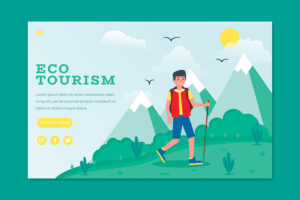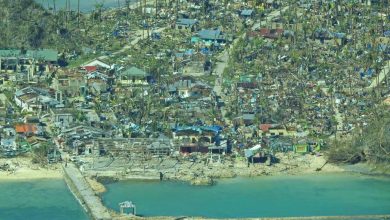Global tourism trends in the now normal

The COVID-19 pandemic has brought global disruptions, affecting different sectors of society, including the travel and tourism industry. According to the World Tourism Organization (WTO), international travel declined by 72% in early 2020 as travel restrictions and lockdowns were implemented worldwide.
“Tourism is one of the sectors most affected by the COVID-19 pandemic, impacting economies, livelihoods, public services, and opportunities on all continents. All parts of its vast value chain have been affected,” the World Tourism Organization said.
However, in 2021, the industry is slowly bouncing back and is expected to full recovery in the following years. WTO’s World Tourism Barometer stated that in comparison to 2021, international tourist arrivals in 2022 jumped to 172%, indicating that the travel and tourism sector is nearly returning to normal. Moreover, there is a rising demand for international travel, and the removing of travel restrictions is also reflected in the gradual recovery of the sector.
Alongside this initial rebound, several trends are expected to be shaping tourism post-pandemic. One of these is eco-tourism, which is also branded as “responsible travel.” This is a form of tourism that allows people to travel in a sustainable way, preserving the environment and helping the local communities at the same time.
Through eco-tourism, ecological protection and economic developments are being implemented while witnessing the beauty of travel and nature. Different types of eco-tourism include adventure eco-tourism (e.g., hiking, biking, climbing, etc.); agri-tourism: which focuses on agricultural-based activities; eco-lodging, which involves a designated place to stay that does not cause environmental impacts; and community development trips.
Revenge travel, referred to as the form of travel to compensate for the lost time because of the pandemic, has also been abuzz as tourism starts rebounding globally.
In his presentation during the BusinessWorld Economic Forum last Nov. 29, Jon Canto, co-managing partner of the Philippines at McKinsey & Company, noted that the traveling and hospitality sector is expected to full recovery in 2024. Mr. Canto added that in spite of the travel restrictions implemented by Asian countries and with fewer to no travel restrictions in European countries, revenge travel is considered a trend that is helping increase the sector’s recovery, as traveling demand increases as well.
The use of technology has also expanded in the tourism and travel sector. From transportation access to digital payments to addressing health protocols, technology became a significant tool that helped with the recovery of the sector. According to the World Travel & Tourism Council (WTTC), health protocols can be achieved by technology solutions through digital health passes, which help in verifying information easily and securely; and digital travel portals, which are online portals allowing quick access to the health entry requirements of the country.
Rebuilding tourism still poses a few challenges, but the future of the sector is seen in a positive light as travel restrictions are being lifted and the traveling demand is continuously rising.
“While government support has been instrumental throughout this crisis, the swift recovery of the sector will only be possible if leaders and public officials work together and provide clear and consistent rules. Governments need to focus on coexisting with COVID-19 while enhancing preparedness for future crises, offering safe travel experiences, supporting equitable vaccine distribution, and continuing to ease the conditions of entry to destinations,” WTTC President and Chief Executive Officer Julia Simpson said. — Angela Kiara S. Brillantes




